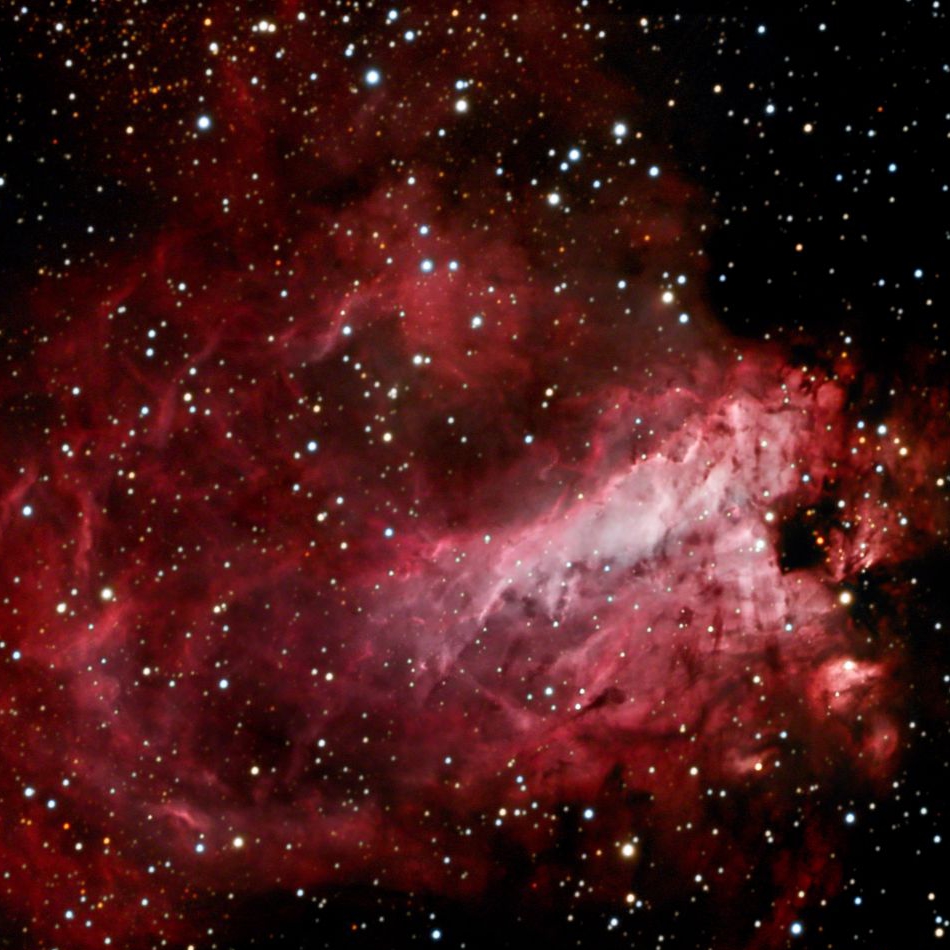
Click here for full resolution image
M17 is also known as the Omega Nebula, the Swan Nebula or even the Horseshoe Nebula. The first one is the most popular name. It is a very bright emission nebula discovered independently (within some weeks) during spring 1746, by Philippe Loys de Chéseaux and Charles Messier. Located in Sagittarius, it is, visually, a neighbor of another conspicuous nebula, M16, the Eagle Nebula. More than 30 massive stars are embedded in the nebula, ionizing it with ultraviolet light and provoking its hydrogen-red glow. This nebula is an active star forming region.
Additional Information
Object
Name(s): M 17, NGC 6618, the Omega Nebula
Type: Emission Nebula
RA: 18h 20m 47s
Dec: -16º 10’ 55”
Constellation: Sagittarius
Size (arcmin): 46×37
Magnitude: +6
Distance: 5,000 ly
Image
Date: 2013-01-31
Location: Corbera de Llobregat, Barcelona, Catalonia
Size (arcmin): 34×26
Telescope: Celestron 11” HD f/10
Camera: FLI ML6303 (3072x2048pix)
Guiding: Orion SSAG/Nikkor 500mm f/8
Processing: CCDStack, Photoshop CC 2016